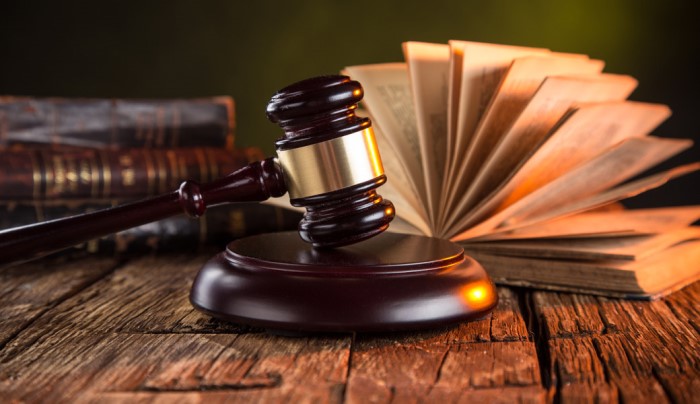Introduction
Dealing with the aftermath of abuse can be an incredibly challenging journey, but knowing your legal options for moving forward is crucial in reclaiming your life. This comprehensive guide will walk you through various legal avenues available to survivors of abuse, empowering you with knowledge and resources to take steps towards healing and justice.
Understanding Abuse Trauma
Survivors of abuse often face profound emotional, psychological, and physical trauma. The aftermath of abuse can manifest in various ways, including anxiety, depression, PTSD, and low self-esteem. It’s essential to acknowledge the depth of these wounds and seek support from trained professionals such as therapists, support groups, and helplines.
Seeking Legal Assistance
Finding the Right Legal Representation
Navigating the legal system can be daunting, especially for survivors of abuse. It’s crucial to find compassionate and experienced legal representation that specializes in cases of abuse. Look for attorneys or legal aid organizations with a proven track record of advocating for survivors’ rights and understanding the complexities of abuse trauma.
Exploring Legal Remedies
Civil Lawsuits
Survivors of abuse have the option to pursue civil lawsuits against their abusers for damages such as medical expenses, therapy costs, lost wages, and pain and suffering. Civil lawsuits provide an opportunity for survivors to hold their abusers accountable in a court of law and seek financial compensation for the harm they’ve endured.
Restraining Orders
Restraining orders, also known as protective orders, can provide survivors with legal protection against their abusers. These court orders prohibit abusers from contacting, harassing, or coming near the survivor, offering a crucial layer of safety and security.
Reporting Abuse to Authorities
Contacting Law Enforcement
Reporting abuse to law enforcement is a vital step towards holding abusers accountable and preventing further harm. If you’re in immediate danger or witness abuse, call emergency services immediately. When filing a police report, provide as much detailed information and evidence as possible to support your case.
Working with Child Protective Services (CPS)
In cases of child abuse or neglect, contacting Child Protective Services (CPS) is essential to ensure the safety and well-being of the child. CPS investigates allegations of abuse, provides support services to families in need, and may initiate legal proceedings to protect children from harm.
Legal Resources for Survivors
Victim Advocacy Organizations
Victim advocacy organizations offer a range of services and support for survivors of abuse, including legal assistance, counseling, shelter, and advocacy. These organizations play a crucial role in empowering survivors, connecting them with resources, and advocating for systemic change to prevent future abuse.
Legal Aid Clinics
Legal aid clinics provide free or low-cost legal services to individuals who cannot afford private attorneys. These clinics often have specialized programs for survivors of abuse, offering legal advice, representation, and assistance with navigating the legal system.
FAQs (Frequently Asked Questions)
- What are the time limits for filing a civil lawsuit for abuse? Time limits, known as statutes of limitations, for filing civil lawsuits vary by state and type of abuse. It’s essential to consult with a legal professional to understand the specific deadlines that apply to your case.
- Can I file a lawsuit against my abuser if they’ve been criminally convicted? Yes, you can still pursue a civil lawsuit against your abuser even if they’ve been criminally convicted. A criminal conviction can strengthen your case in a civil lawsuit by providing evidence of wrongdoing.
- What evidence is needed to obtain a restraining order? Evidence needed to obtain a restraining order may include police reports, witness statements, medical records documenting injuries, and testimony from mental health professionals. It’s essential to provide as much evidence as possible to support your request for a restraining order.
- How can I protect my child from an abusive parent? If you’re concerned about your child’s safety with an abusive parent, you can seek legal assistance to obtain a custody order or modify an existing custody arrangement to ensure the child’s well-being. Document any incidents of abuse and present this evidence to the court.
- Are there resources available for male survivors of abuse? Yes, there are resources available for male survivors of abuse, including counseling services, support groups, and legal assistance. Organizations such as MaleSurvivor and 1in6 offer support specifically tailored to male survivors’ needs.
- Can I remain anonymous when reporting abuse to authorities? In some cases, you may be able to report abuse anonymously, depending on the laws and policies in your jurisdiction. However, providing your identity and contact information can help authorities investigate and follow up on your report effectively.
Conclusion
Navigating the aftermath of abuse requires courage, resilience, and support. By understanding your legal options for moving forward, you can take proactive steps towards healing, justice, and reclaiming your life. Remember, you are not alone, and there are resources and professionals available to support you on your journey towards healing and recovery.


